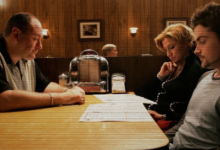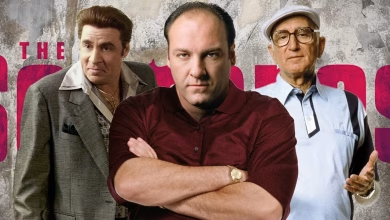‘The Sopranos’: Why “Pine Barrens” Is Still the Best Episode
Christopher and Paulie got lost in the woods 20 years ago this month.
Calling The Sopranos the best television series of all-time is a little like calling Citizen Kane the greatest film ever made. It’s such an obvious choice, but in no way should it dissuade younger viewers from seeking it out. Both The Sopranos and Citizen Kane have rightfully earned the reputation of being prestigious fare with significant influence on their respective mediums, but both have a secret weapon up their sleeves – they’re really damn entertaining.
The Sopranos was often one of the funniest things on television, and its sense of humor was one of its distinguishing characteristics among early prestige television. While The Godfather and Goodfellas were certainly influences on the world that David Chase imagined, seeing the inner workings of the mafia on an everyday level was unprecedented. The idea that Tony Soprano (James Gandolfini) was a family man who struggled to keep his two responsibilities in check is the heart of the series’ drama, but it also led to many humorous scenarios.
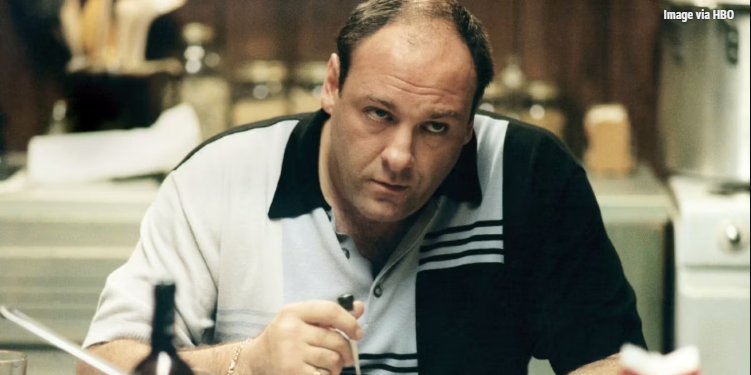
It was also the supporting cast of characters and their banter that made the series feel so lived-in. Many of the most acclaimed episodes were Tony-centric, including Season 1’s “College,” Season 2’s “Funhouse,” or Season 5’s “The Test Dream,” but the complex narrative allowed for episodes that spotlighted other characters to reach similar heights. No episode exemplified this better than Season 3’s “Pine Barrens.” 20 years after its initial HBO debut on May 6, 2001, it remains one of the funniest and most influential episodes that The Sopranos ever aired.
As Tony weighs a future with his fling Gloria Trillo (Annabella Sciorra), he dispatches his nephew Christopher Moltisanti (Michael Imperioli) and right-hand man Paulie Gualtieri (Tony Sirico) to complete a transaction with Russian mobster Valery (Vitali Baganov). Christopher and Paulie, often at odds with one another, end up initiating a seemingly lethal brawl with the quirky Russian and plot to dump his body in the Pine Barrens. Unfortunately, Valery is very much alive and manages to escape into the bitter woods, resulting in a thoroughly miserable trek through the snow for the three characters.
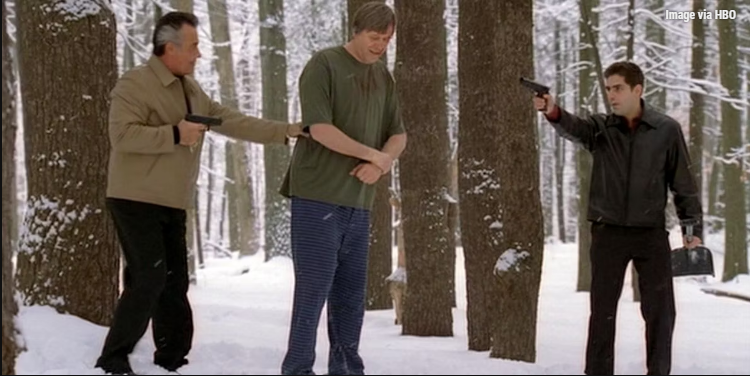
But it’s only miserable for them- the diversion into the icy wilderness becomes a hilarious worst-case scenario for Christopher and Paulie as they desperately search for the elusive Valery. Both guys are under pressure to not ruffle any of their boss’s feathers; Christopher’s addiction issues have frequently disrupted the family’s operations and Paulie has long sought a respect from Tony that he rarely sees, despite his fierce loyalty. As poor phone reception cuts them off from Tony and the pair become lost, it’s evident that the two will never find the shifty Russian. Their increasingly high-strung quest becomes a comedy of errors in which we get to revel in their distress.
Part of the inherent humor of the concept is pairing the two characters who are most often at each other’s throats. While both men are frequently impulsive, much of Paulie’s anger stems from his refusal to believe that Christopher will ever ascend to lead the family. Christopher isn’t technically Tony’s nephew, but rather a distant cousin of Tony’s wife Carmela (Edie Falco). Nonetheless they are bound by blood and Christopher is Tony’s natural successor. Paulie’s reverence for his boss frequently reaches absurd levels, and as a result he often competes with Christopher for Tony’s attention like a child would for a favorite parent.
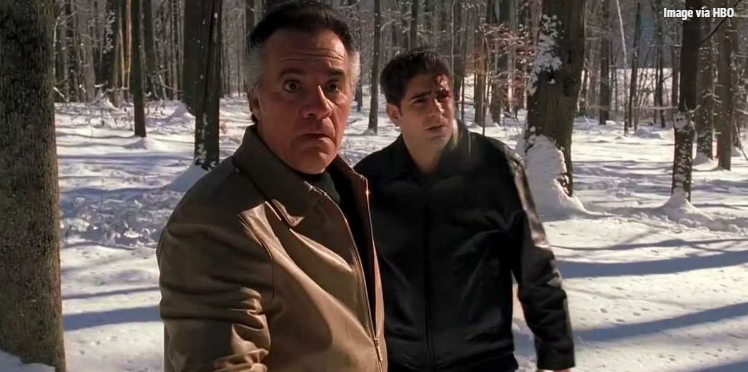
Seeing these two selfish, paranoid man-children work together grows even funnier when they’re forced to acknowledge each other’s merit in their own unusual ways. It took a hellish mission-gone-wrong for the two to get exhausted of blaming each other, and it’s hilarious that their induced madness is the only way for them to show any empathy.
This is also one of Gandolfini’s best comedic performances, as Tony sits out the main action and gets to call shots from afar. His unusually upbeat spirit because of his illicit affair soon dampens when he learns of his henchmen’s incompetence, and no one can scream over the phone quite like Gandolfini. Tony’s breakdown into laughter when he sees the affable Bobby Baccalieri (Steve Schirripa) decked out in outdoor gear, spurred by a raunchy real-life prank to get Gandolfini’s reaction, is one of the most authentic laughs of the entire series.
The brilliance of “Pine Barrens” comes from the fact that Christopher and Paulies’ detour mirrors the narrative arc of the series, elevating what seems like a B-plot into the dominant storyline of the episode. The episode falls towards the end of Season 3 where the characters are under considerable pressure; Tony’s daughter Meadow (Jamie-Lynn Sigler) is caught in a quarrel with her criminally-inclined boyfriend Jackie (Jason Cerbone), Gloria’s erratic behavior threatens Tony’s decision making skills, and Tony’s therapist Dr. Melfi (Lorraine Bracco) recovers from a traumatic incident. Yet, just like Christopher and Paulies’ seemingly simple mission, all of these intense story arcs are momentarily derailed.
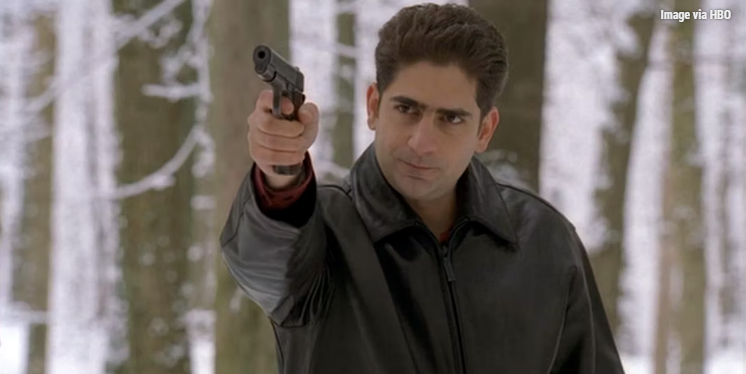
The presence of this sort of sidetrack is exactly why The Sopranos was such a breakthrough. It didn’t conform to the constraints of either episodic television or serialized storytelling, allowing the narrative to flow at a natural pace. Some consequences didn’t become apparent for several seasons, and some storylines were left hanging without a clean resolution or the satisfaction of a definitive answer- none more so than the show’s lingering final shot. Just like real life, The Sopranos allowed itself to be heartbreaking, hilarious, exhausting, and even irritating.
At its worst, this resulted in tiresome storylines, such as a retreat by Vito Spatafore (Joseph R. Gannascoli) to New Hampshire in the early half of Season 6 or the growingly irksome ramblings from Tony’s son A.J. (Robert Iller). At its best, it elevated a story as seemingly trivial as the one in “Pine Barrens” into an equally farcical and poignant one. It’s definitely a change of pace, and much credit is due to director (and co-star of Season 5) Steve Buscemi, whose experience helming slice-of-life indie gems like Trees Lounge and Animal Factory came in handy when balancing realism with situational comedy.
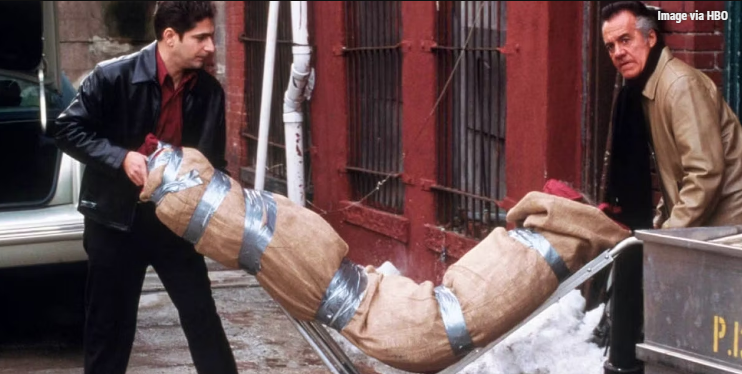
“Pine Barrens” doesn’t end with Christopher and Paulie luring Valery into an intense standoff, nor does it culminate in a haunting final shot of Valery escaping into the distance. Rather, it concludes with a spare reprimand from Tony as he, Bobby, Christopher, and Paulie sit silently in a car ride quieter than anything in the empty woods. Just a few episodes later, Christopher and Paulie would be snapping at each other once again. The fact that no real lessons rolled over from the incident makes it even funnier in retrospect.
